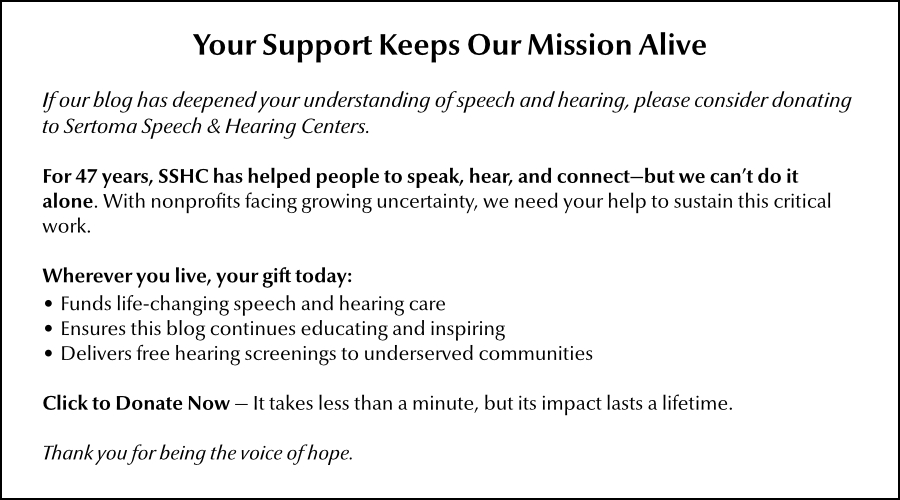Common sounds like a dog barking or a refrigerator humming can be excruciating for 8 to 17% of Americans. This hearing sensitivity, known as hyperacusis, can dramatically impact daily living.
Why it matters
Hyperacusis can cause significant distress, anxiety, depression, and difficulty participating in social, professional, and recreational activities.
Symptoms
With hyperacusis, your tolerance to common sounds is diminished. People with it report—
- Perceiving ordinary sounds as unbearably loud
- Ear pain or discomfort when exposed to certain noises
- Anxiety or distress in noisy environments
- Difficulty understanding speech in noisy settings
- Tinnitus often accompanies hyperacusis
What are the causes?
The cause of hyperacusis is unknown, but loud noise exposure is likely a cause. For many, it develops gradually but can occur suddenly following a loud noise, like fireworks. The condition is unique to each person.

Risk factors include the following:
- Loud noise
- Head or ear injuries
- Certain medications or toxins
- Inner ear infections
- Migraines or multiple sclerosis
- Temporomandibular joint (TMJ) disorders
- Lyme disease
- Post-traumatic stress disorder (PTSD)
A closer look
Clinicians recognize four types of hyperacusis.
- Loudness hyperacusis increases moderate sounds like restaurant chatter or car horns.
- Annoyance hyperacusis (misophonia) makes specific sounds like pen clicking or chewing very bothersome.
- Fear hyperacusis (phonophobia) involves anticipating a loud sound with dread.
- Pain hyperacusis causes physical pain in the ears or head from moderately loud sounds.
- It's also possible to experience multiple types together.
Treatment
There isn't a cure for hyperacusis, but treatments can help manage symptoms and improve quality of life. Treatment often involves a combination of approaches that include the following:
- Self-help strategiesinclude finding quiet spaces, listening to pleasant sounds, and carefully using hearing protection only when necessary.
- Sound desensitization involves gradually exposing patients to increasing sound levels under an audiologist's guidance to build tolerance.
- Cognitive behavioral therapy (CBT) can help patients manage their anxiety and fear associated with hyperacusis. Medication can address associated symptoms like anxiety or underlying conditions, but there’s no drug specifically for hyperacusis.
- Relaxation techniques like progressive muscle relaxation and visual imagery can help manage stress.
- Counseling with a therapist can help address fears, anxieties, and social isolation often experienced by those with hyperacusis.
Notable: Using earplugs or avoiding sounds is generally not recommended, as this can increase sensitivity.
Do you suspect you have hyperacusis?
If you do, schedule a consultation with an audiologist for a thorough diagnosis and treatment plan.
Crest Hill, IL - 630-633-5060 | Palos Hills, IL - 708-599-9500


